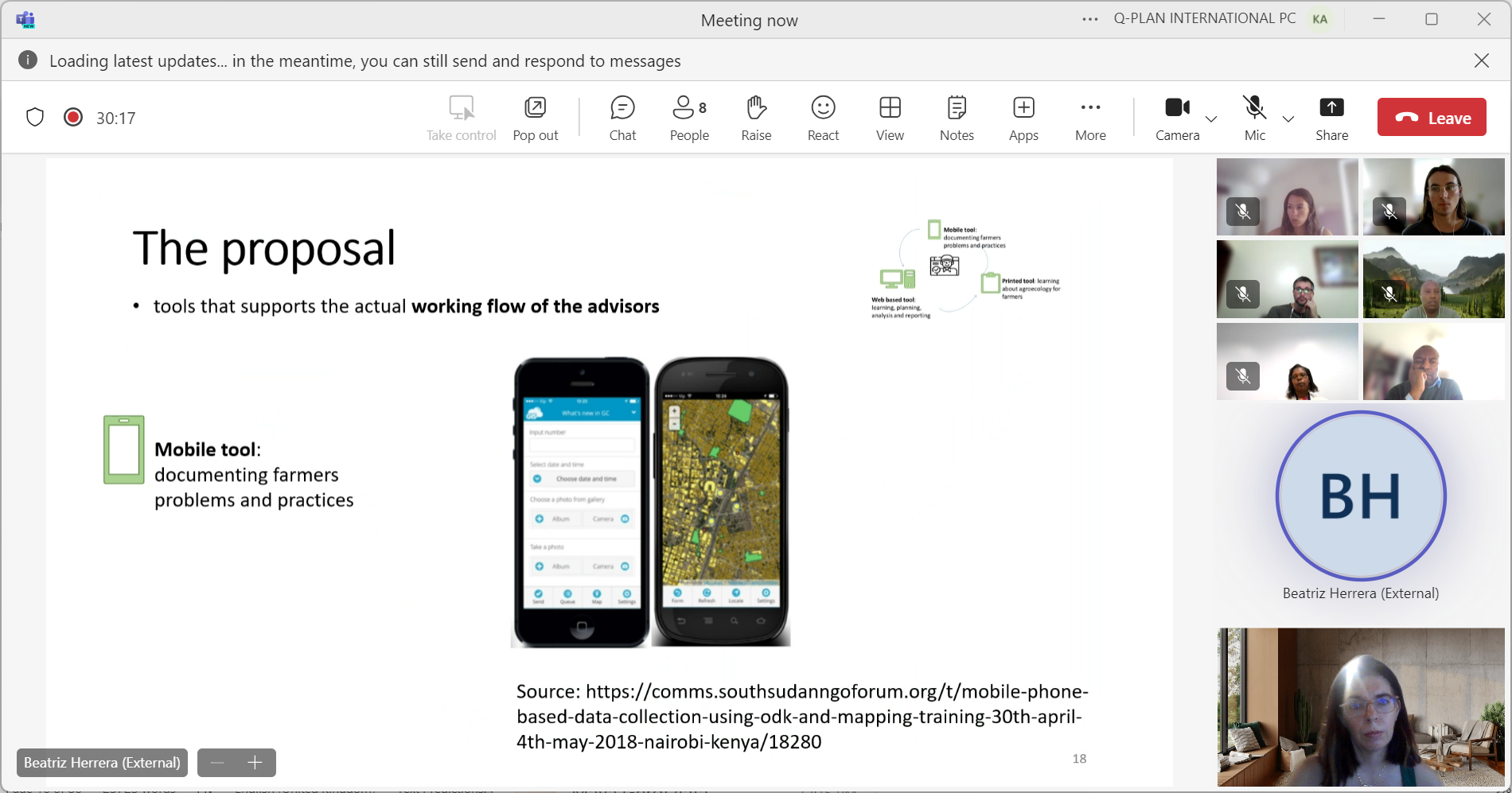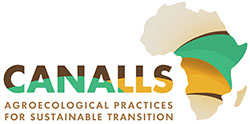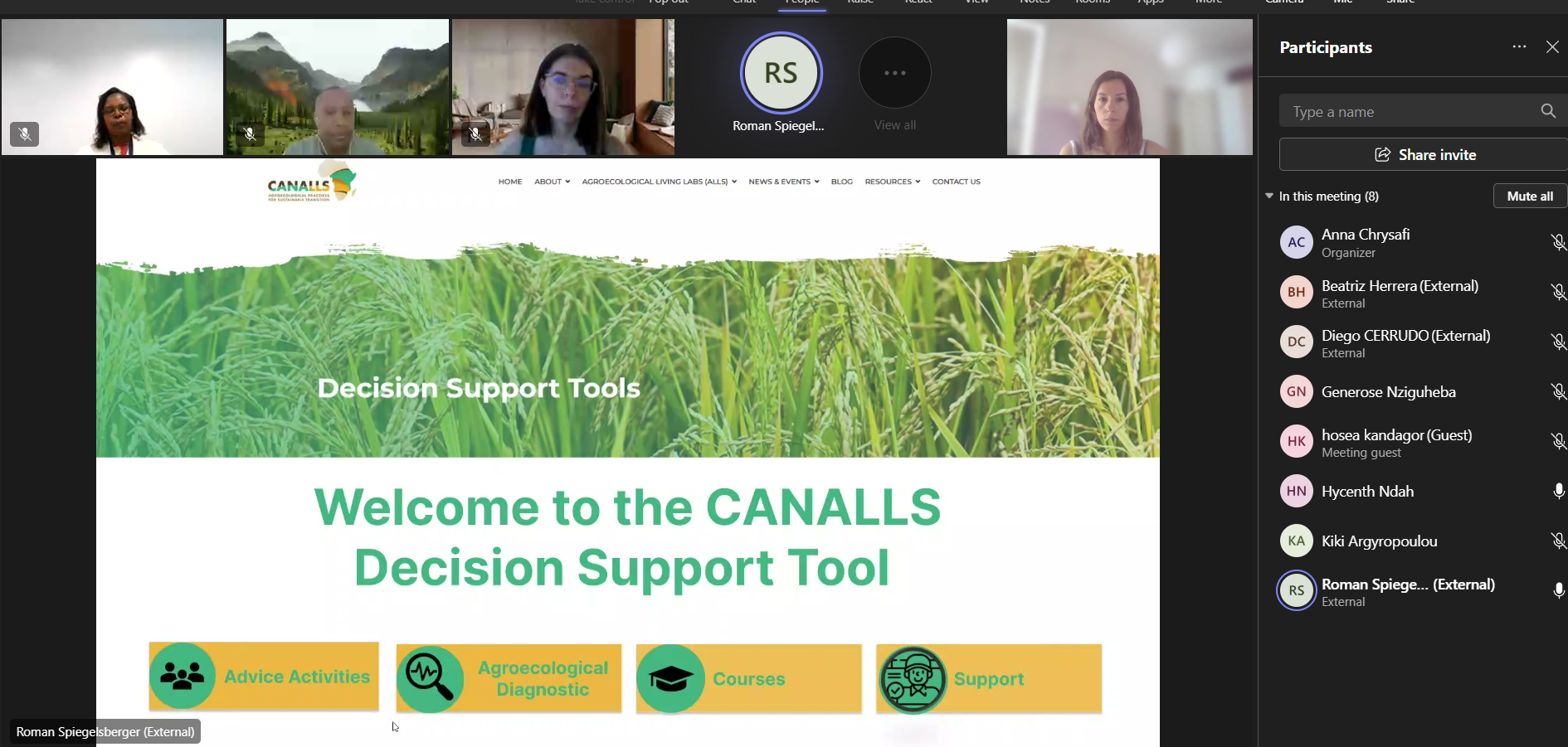We recently held our second online Advisory Board meeting, focusing on the development of the CANALLS Decision Support Tools (DSTs). These innovative tools are being designed as practical resources for advisors to guide and support tailored agroecological transitions.
The DSTs will empower farm advisors to facilitate these transitions effectively, addressing a crucial need in contemporary agriculture. The development process for the DSTs will follow a comprehensive two-stage participative and co-creational approach.
In the first stage, CANALLS organised a workshop with farm advisory representatives from all four focal countries. This workshop aims to gather insights on the needs and expectations of the end-users, ensuring that the DSTs are tailored to their specific requirements.
The second stage will involve usability tests conducted in the Agroecological Living Labs (ALLs), with the active participation of advisors. Feedback from these tests will be instrumental in refining the DSTs, enhancing their usability, cost-effectiveness, performance, relevance, and compatibility.
Both stages are designed to boost end-user adaptation and mitigate common challenges faced by DSTs. The goal is to create tools that are not only practical and efficient but also widely accepted and utilized by advisors.
Once developed, the DSTs will be disseminated and scaled up within existing agricultural networks across Africa, promoting widespread adoption and supporting agroecological transitions on a broader scale.
Stay tuned for further updates on the CANALLS Decision Support Tools and their impact on agroecological practices in Africa.





